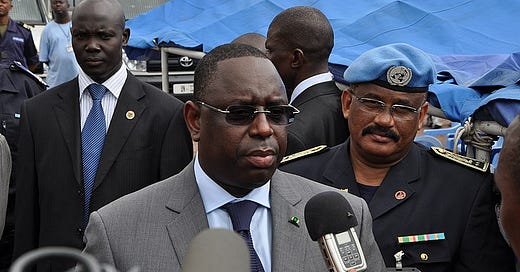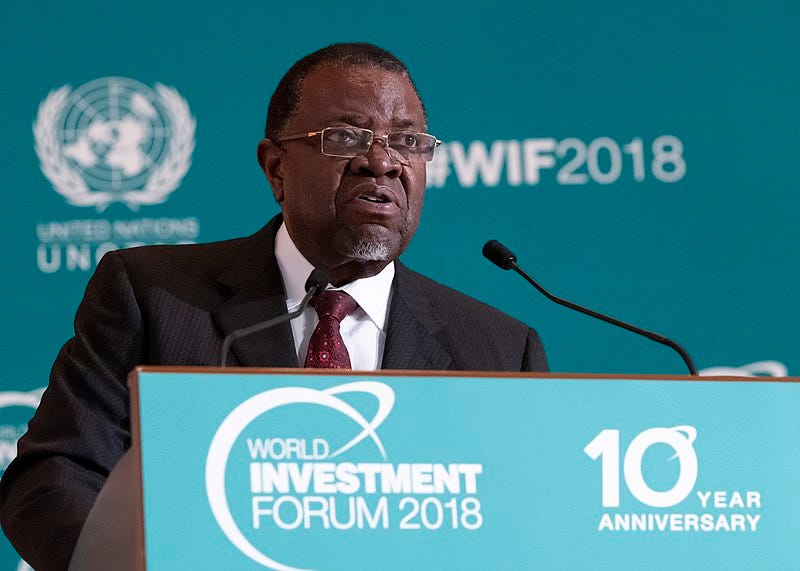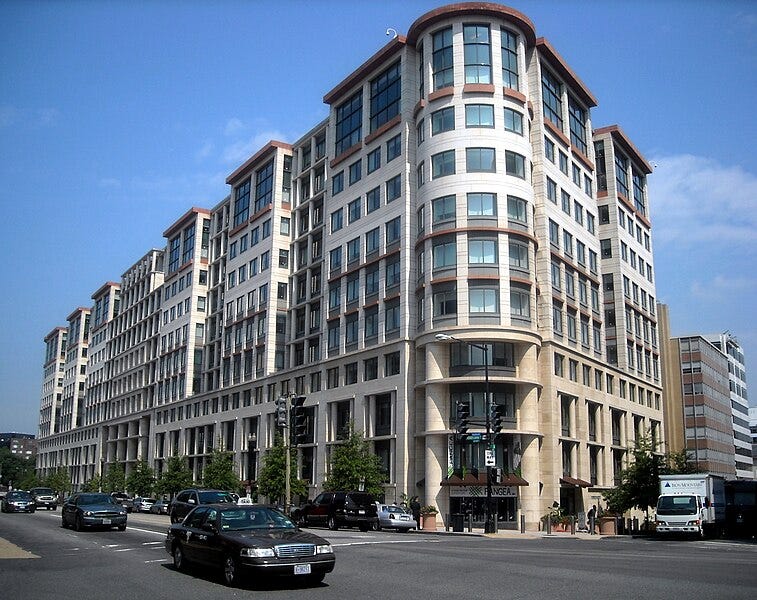🔅 Senegal's Election Crisis & Namibia's Historic Transition: A Pivotal Moment for African Democracy
Plus, Tech Giants Invest in Zambia's Copper Wealth & A Moral Reckoning at the IFC
Photo of the Day

Brief & Bright: Africa's Top Five
Senegal's Election Standoff: A Democracy in Disarray
Senegal's President Macky Sall has thrown the electoral playbook out the window, postponing this month's elections without setting a new date. This move, supposedly sparked by a dispute over candidate eligibility, has drawn a chorus of concern from international spectators, including the West African bloc Ecowas, the US, France, and the EU, all urging a swift rescheduling.
Dakar, the capital, turned into a stage for protest theatre this weekend after the announcement, with police tear-gassing demonstrators. This unsettling development hints at a rocky road ahead, with more protests slated for this week. Senegal, a beacon of democratic stability in West Africa, now finds its reputation teetering on the edge of a cliff, thanks to this electoral cliffhanger and murmurs of unfair play.
The backdrop to this drama includes fears of Sall eyeing a third term—a fear he quelled a few months ago by promising not to run. Yet, the absence of an electoral calendar has stirred the pot, reviving memories of past protests that turned deadly over political and judicial manoeuvring against opposition candidates.
Namibia's Political Shuffle After President Geingob's Passing
Following the passing of Namibia President Hage Geingob this weekend, Nangolo Mbumba stepped up as the interim president. But Namibians won't have time to get too attached to him; he's already announced he won't be throwing his hat in the ring for the end-of-year elections. This leaves the stage set for Netumbo Nandi-Ndaitwah, the current vice president and their party's (SWAPO) chosen one for some time already, to make history as the nation's first female president. The rules of the game are strict—once SWAPO picks a candidate, there are no backsies.
Since waving goodbye to South Africa in 1990, Namibia has been under SWAPO's steady hand, navigating through its treasure trove of diamonds, uranium, and the electric-vehicle goldmine that is lithium.
Geingob's legacy? Born in 1941, Geingob chaired the body that drafted Namibia's constitution and then became its first prime minister at independence in 1990. As president, he launched Namibia onto the green economy leaderboard with Africa's first decarbonised iron plant—a bold move in the steelmaking game, notorious for its pollution playbook. This puts Namibia in the eco-friendly spotlight, overtaking South Africa, where the green transition is more stumble than stride. Hage Geingob, 82, died early on Sunday while receiving medical treatment at a hospital in the capital, Windhoek.
Gates and Bezos Bet Big on Zambia's Copper Mine
A start-up with the backing of tech titans Bill Gates and Jeff Bezos has struck it rich in Zambia, uncovering the country's largest copper deposit in a century. Mingomba is a find so massive that it's poised to catapult itself into the top three high-grade copper mines globally.
The timing couldn't be more perfect. With the world desperately seeking to break up its toxic relationship with fossil fuels, copper's role as the lifeblood of renewable energy and electric vehicles is getting all the love.
KoBold Metals aren't just digging holes in the ground on a hunch. No — they're harnessing the power of artificial intelligence to sift through archival geological documents, including old maps, to pinpoint where Mother Nature's hidden her treasures.
The IFC's And a Call for Justice in Kenya
The agenda of a recent board meeting at the International Finance Corporation (IFC) wasn't about dollars and cents but a moral reckoning. They're deliberating compensation for alleged child sexual abuse victims in Kenyan schools funded by their $13.5 million investment in Bridge International Academies.
The crux of the issue is the IFC's alleged oversight failure, according to a scathing review by its own Compliance Advisor Ombudsman. It seems the organization's sustainability policies were more aspirational than operational, leaving Bridge International Academies unchecked and, according to civil society groups, children unprotected. Civil society groups, teachers’ unions, and international funders have lamented the IFC's "limited steps" in safeguarding against child abuse. Their letter to World Bank President Ajay Banga paints a grim picture of negligence.
As the IFC ponders its next move, the implications loom large. A decision to compensate could herald a new era of accountability for international financial institutions, setting a gold standard for remediation in cases of human rights abuses.
Food for Thought
“A healthy person who keeps begging for food is an insult to a generous farmer."
— Ghanaian Proverb







